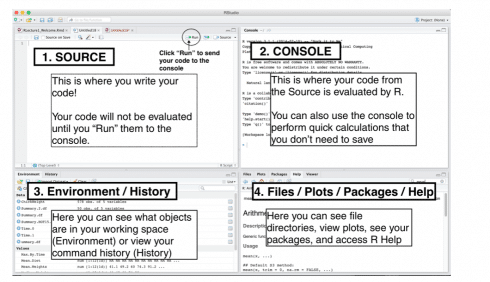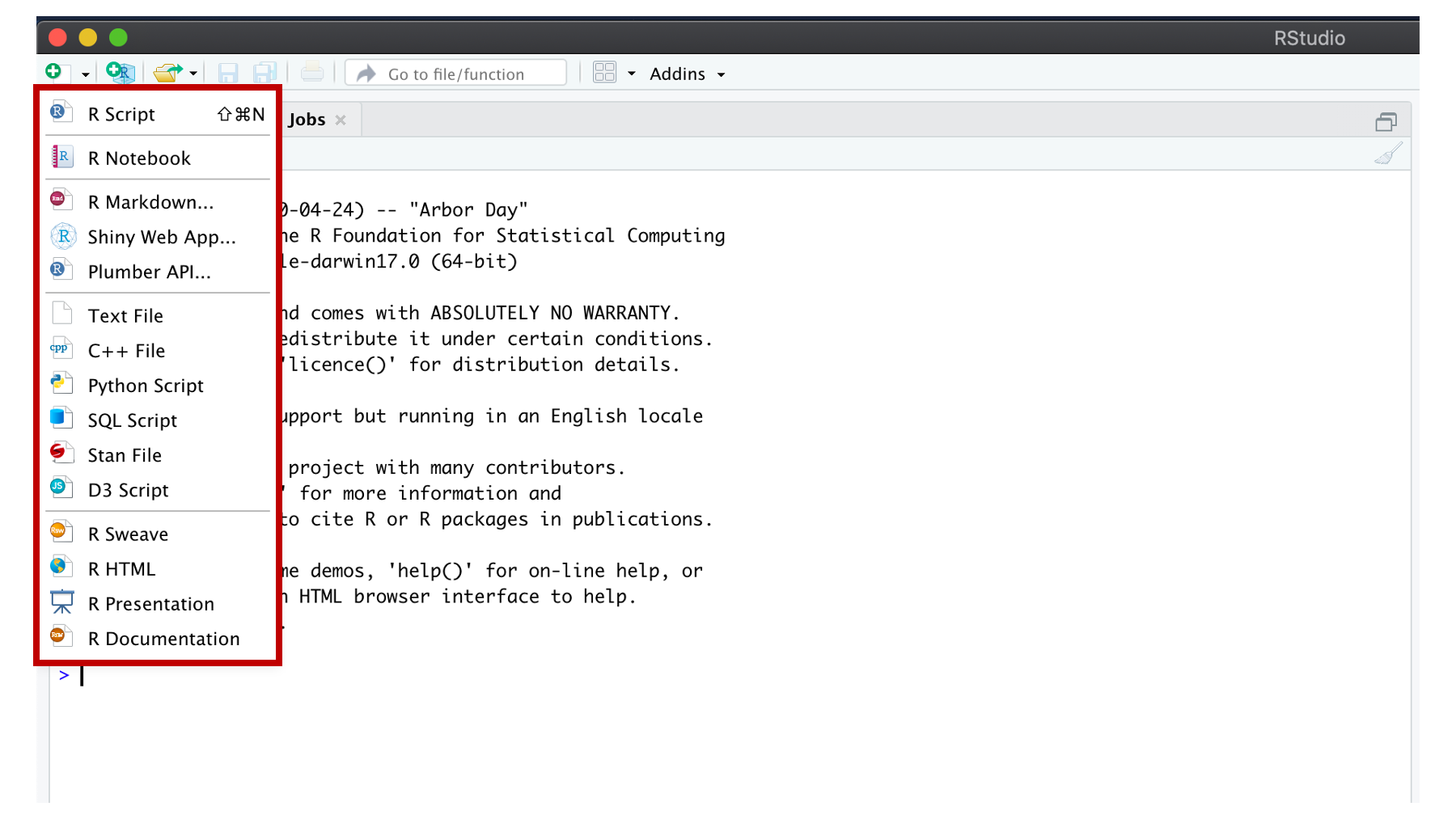
Rstudio source on save install#
# use "sudo apt-get install libmysql++-dev" (in addition to MySQL itself, i.e. # if the install.packages() command produces an error, under Ubuntu: If you're using MySQL, you can talk to the database directly: library(RMySQL) # use install.packages("RMySQL") if this produces an error Mydf2 <- sqlQuery(channel, "SELECT * FROM Monke圜antab_LOOKUP_TaskTypes WHERE TaskType < 6") Fetch the results of a query into a data frame. Mydataframe <- sqlFetch(channel, "my_table_name") # fetch a table from the database in its entirety # channel <-odbcConnect("mydsn", uid="username", pwd="password") # if you need to specify a username/password, use: Library(RODBC) channel <- odbcConnect("my_DSN") # specify your DSN here This is then used by all programs that request data via ODBC.
Rstudio source on save windows#
"C:\MyExperiment\Monke圜antab_database_7.mdb") needs to be set up via the Windows ODBC Manager (Data Source Administrator) tool, giving that particular database a data source name (DSN), such as "Monke圜antabDB7". To use this, the actual database in question (e.g. There are special mechanisms to support Excel files (see above) and Microsoft Access databases, but in general any database can be accessed via its ODBC interface. ODBC data sources (and other database connections) # Remember you can also use file.choose() in place of the filename, as above.įor saving in SPSS format from R, see extensions.

Very easy: library(foreign) mydata <- ame(read.spss("filename.sav" )) probably won't work out of the box, so this works well: library(gdata)ĭata <- read.xls("myexceldata.xls", sheet=1) # load the first worksheet , though you may have renamed them something more informativeīut in a Linux environment, the Windows ODBC settings etc. Indexcasedata <- sqlFetch(channel, "Sheet2") # by default Excel names individual sheets Sheet1, Sheet2. Patientdata <- sqlFetch(channel, "Vitamin_D_levels") # specify a sheet within the spreadsheet I find this easy: library(RODBC) channel <- odbcConnectExcel("Osteomalacia_data.xls") # specify the filename

There are several ways to read from Excel spreadsheets. In the R Commander, you can use Data / Import data / from text file or clipboard, and, having selected a data set, Data / Active data set / Export active data set. Write.table(.) # } (read.csv and write.csv are specialized versions of read.table and write.table) Read.table(.) # } A more generic way to read/write tabular data from/to disk Write.csv(my.data, file="d:/temp/newfile.csv", row.names=FALSE) # Here's one: turn off row names to avoid creating a spurious additional column. There are several options available see the help (use ?write.csv) Write.csv(my.data, filename2) # Write the data to a new file. row.names=1 readsĪttach(my.data) # you might then want to attach the new data to the path, though this is optional # and no row names, but you can change all these defaults (e.g. # (3) The default is to assume a header row with variable names (header=TRUE), # (2) file.choose() pops up a live filename picker # Note: (1) = and <- are synonymous, and are the assignment operator (while = tests for equality) Text files (including comma-delimited value or CSV files) Postscript("mygraph.ps") # subsequent graphical output will go to a PostScript file Jpeg("mygraph.jpeg") # subsequent graphical output will go to a JPEGīmp("mygraph.bmp") # subsequent graphical output will go to a BMP Png("mygraph.png") # subsequent graphical output will go to a PNG

Rstudio source on save pdf#
Pdf("mygraph.pdf") # subsequent graphical output will go to a PDF Redirecting output: sink("myfile.txt") # redirect console output to a file Last <- function() cat("\n Goodbye!\n\n") First <- function() cat("\n Script ~/.Rprofile executed.\n\n") adjustWidthCallBack <- addTaskCallback(.adjustWidth) Running scripts: source("myfile.R") # load and execute a script of R commandsįor a startup script, edit ".Rprofile" in your home directory (for details see ?Startup). A few file-handling commands may be useful: setwd("c:/myfiles") # use / or \\ to separate directories under Windows (\\ becomes \ once processed through the escape character mechanism)ĭir() # list the contents of the current directory


 0 kommentar(er)
0 kommentar(er)
